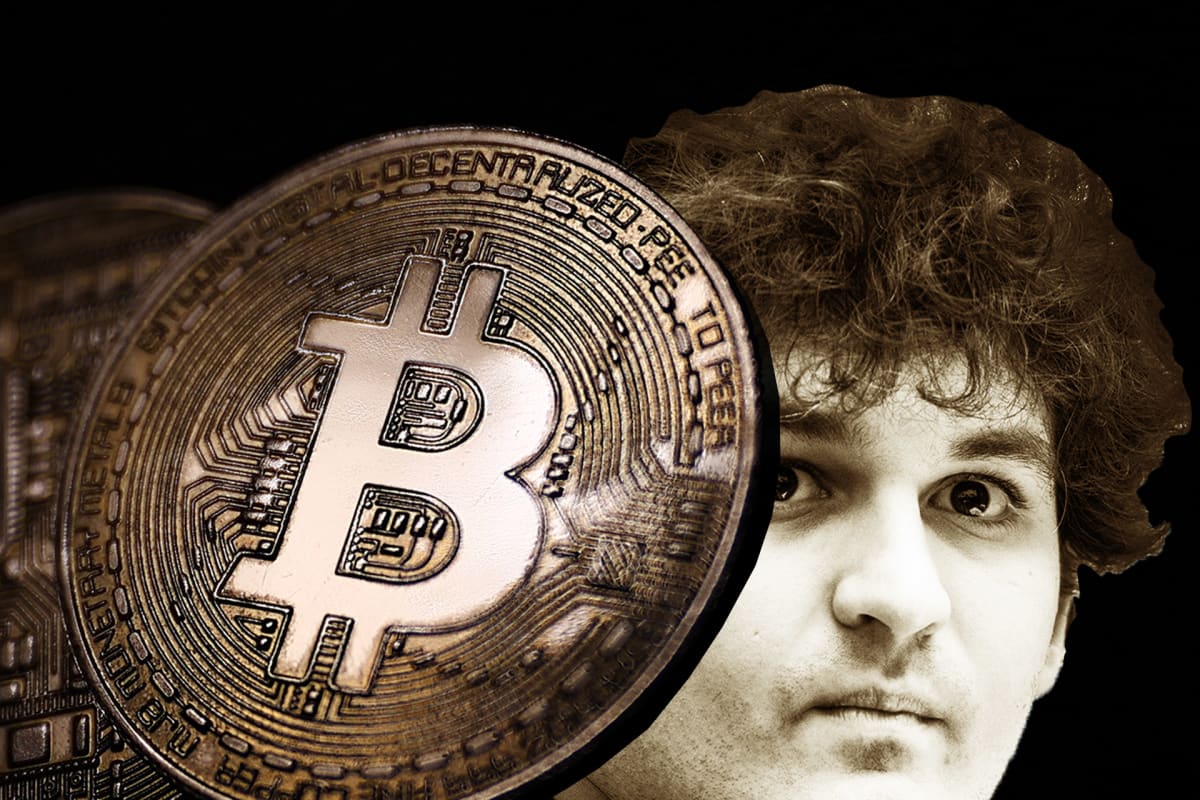
The implosion, within a few days, of the FTX cryptocurrency exchange is a financial fiasco which has not yet revealed all its implications, collateral damage and accountabilities.
FTX is a company which was valued at $32 billion in February and had emerged as the savior of crypto firms weakened by the credit crunch caused by the collapse of sister cryptocurrencies Luna and UST, or TerraUSD, in May.
The firm, that was the centerpiece of 30-year-old Sam Bankman-Fried's crypto empire, was considered one of the most influential and financially solid players in the cryptocurrency industry. That's how it was perceived. Hardly anyone could imagine that it was going to collapse within a few days.
And yet that's what happened on Nov. 11, when Bankman-Fried filed for Chapter 11 bankruptcy for his empire, which also includes Alameda Research, a cryptocurrency hedge fund.
FTX and Alameda found themselves short of cash, following a run on the bank caused by the decision of their rival Binance to sell $530 million of FTT, the cryptocurrency issued by FTX, which served as collateral for the loans making up their balance sheet. There were also allegations of misuse of clients funds.
As a crypto exchange, FTX executed orders for their clients, taking their cash and buying cryptocurrencies on their behalf. FTX acted as a custodian, holding the clients’ crypto currencies. The firm then used its clients’ crypto assets, through its sister company’s Alameda Research trading arm, to generate cash through borrowing or market making. The cash FTX borrowed was used to bail out other crypto institutions in the summer of 2022.
'Ineffective' Altruism vs. 'Effective' Altruism
At the same time, FTX was using FTT as collateral on its balance sheet. This represented a significant exposure, due to the concentration risk and the volatility of FTT.
For Elon Musk, part of the responsibility of this debacle rests with FTX investors. The billionaire is particularly targeting the powerful venture capitalist firm Sequoia Capital, which is a major investor in the tech sector. Musk seems to question the judgment of the firm which was still singing the praises of Bankman-Fried, aka SBF, in a September article which has since been removed from the firm's website.
"SBF is ineffective altruism, but they thought he was saying he was in effective altruism. Easy misunderstanding," the billionaire said on Twitter, referring to the article by Sequoia.
"Or affected altruism," commented his friend and tech investor David Sacks.
The article he is referring to was published by Sequoia on Sept. 22. It was titled: "Sam Bankman-Fried Has a Savior Complex — And Maybe You Should Too."
It was a celebration of SBF immediately evident from the introduction: "The founder of FTX lives his life by a calculus of altruistic impact," Adam Fisher, the author, who is a long time Silicon Valley journalist, wrote. The article, which was commissioned by Sequoia Capital, was posted on the firm's website under "We help the daring build legendary companies.”
'Goldilocks Perfect'
Fisher wrote that SBF was then part of the Wall Street elite and compared him to legendary financiers George Soros, Paul Tudor Jones and John Paulson, known respectively for their successful bets against the British pound, the collapse of the U.S. economy and subprime mortgage loans.
In the article, he described FTX as "a company that may very well end up creating the dominant all-in-one financial super-app of the future."
The author said that SBF was part of the Effective Altruism (EA) movement, whose ideology boils down to "most good can be done by choosing to make the most money possible — in order to give it all away”. Basically, earn-to-give was the community’s leitmotiv.
The article also said how Sequoia was eager to become an investor in FTX. During a meeting via Zoom in the summer of 2021, SBF completely dazzled Sequoia as he answered questions from executives while playing the video game League of Legends throughout the meeting.
According to Fisher, Michelle Bailhe, a "young gun” at Sequoia Capital said: "The exchange that SBF had started to build, FTX, was Goldilocks-perfect". She added: "There was no concerted effort to skirt the law, no Zuckerbergian diktat demanding that things be broken. And, yet, FTX wasn’t waiting to get permission to innovate."
She continued: "SBF himself seemed to be bred for the role of crypto exchange founder and CEO. Not only had he been a top trader at a top firm—and, thus, the ideal customer—but both his parents were lawyers.”
The partners at Sequoia were ecstatic at the end of the meeting:
"I LOVE THIS FOUNDER,” typed one partner, according to Fisher.
"I am a 10 out of 10,” said another. "YES!!!” exclaimed a third.
Sequoia would participate in round B, which raised $1 billion, including $420 million from the venture capital. The round boosted FTX's valuation to $25 billion in October 2021. A consortium with Paradigm invested $400 million in January 2022, bringing the valuation to $32 billion.
Musk's review suggests that Sequoia and these other investors are among Bankman-Fried enablers.
Sequoia sent a letter to its limited partners on Nov. 9, stating that it now values the $210 million investment into FTX as $0 and that it was a total loss.
FTX's investor list is a who's who of finance: Sea Capital, IVP, ICONIQ Growth, Tiger Global, Ribbit Capital, Lightspeed Venture Partners and funds and accounts managed by BlackRock.
TheStreet contacted Sequoia Capital to ask if they had changed their mind about SBF in light of the FTX debacle, but the firm did not respond immediately.







